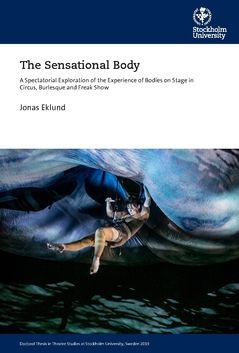Towards the end of the 20th century, the three genres circus, burlesque, and freak show were revived after a long decline that had started in the first half of the century. The revival brought new ideas, a new framing, and a realignment to contemporary values and beliefs. What still remains at the core of the entertainment, however, are the sensational bodies on stage.
This dissertation explores the attraction of these genres by focusing on the spectator’s experience of the bodies on stage and the meaning they produce. With a theoretical base in embodied phenomenology, it engages in the exploration from a first-person perspective using a combined method of performance analysis and autoethnography.
It engages in discussion on topics such as entertainment, the political, popular culture, and liveness, focusing on the embodied experience of desire, disgust, uncanny, and kinesthetic empathy. It directs attention to relational aspects by focusing on the intersubjective experience of the bodies on stage and the bodies in the audience, exploring the potential of subversion, community, and utopia.
The study shows the significance of the spectator’s experiences and reveals the potential of using the experience as an analytical tool to broaden the understanding of theater and performances.
This is a Doctoral Thesis in Theatre Studies at Stockholm University, Sweden 2019


